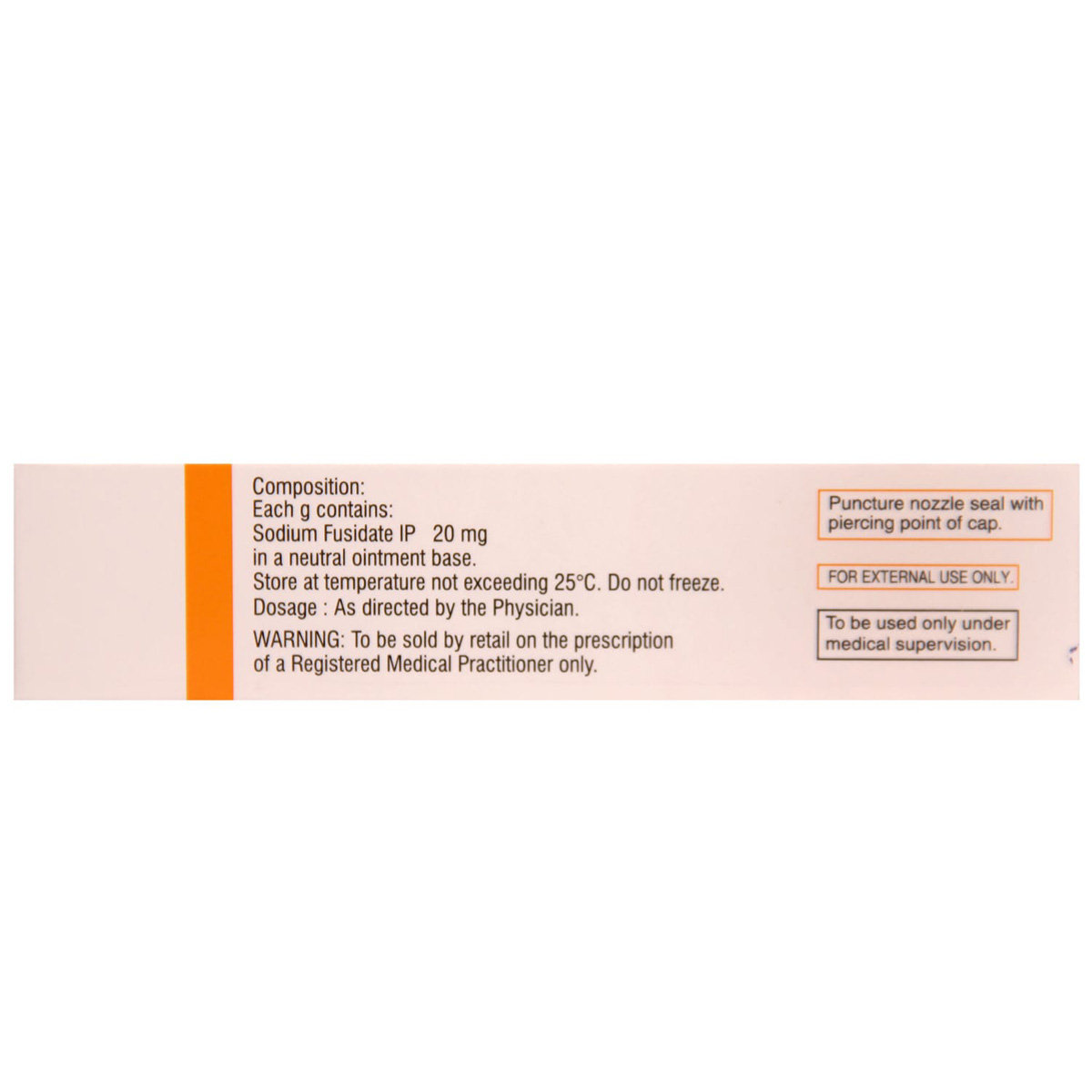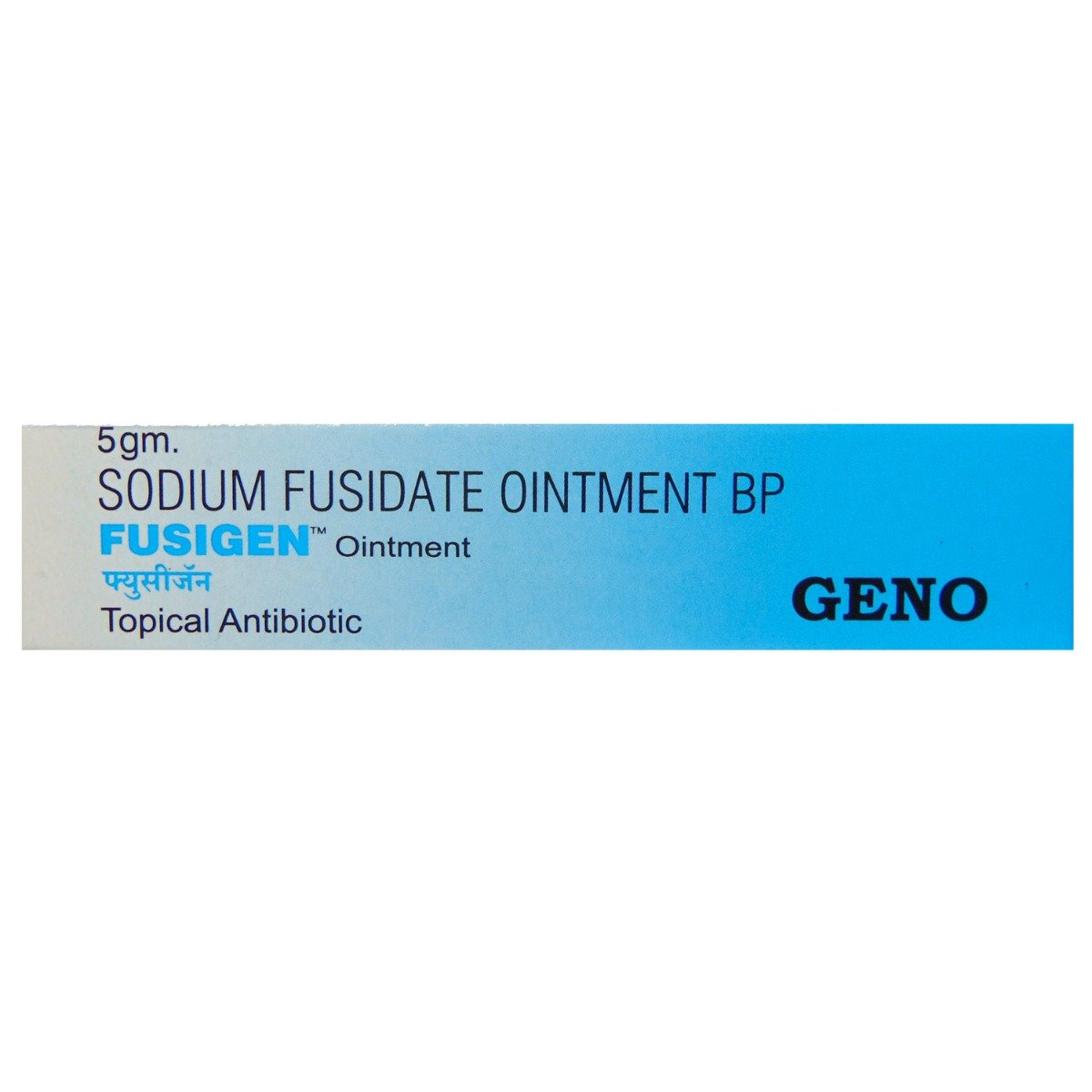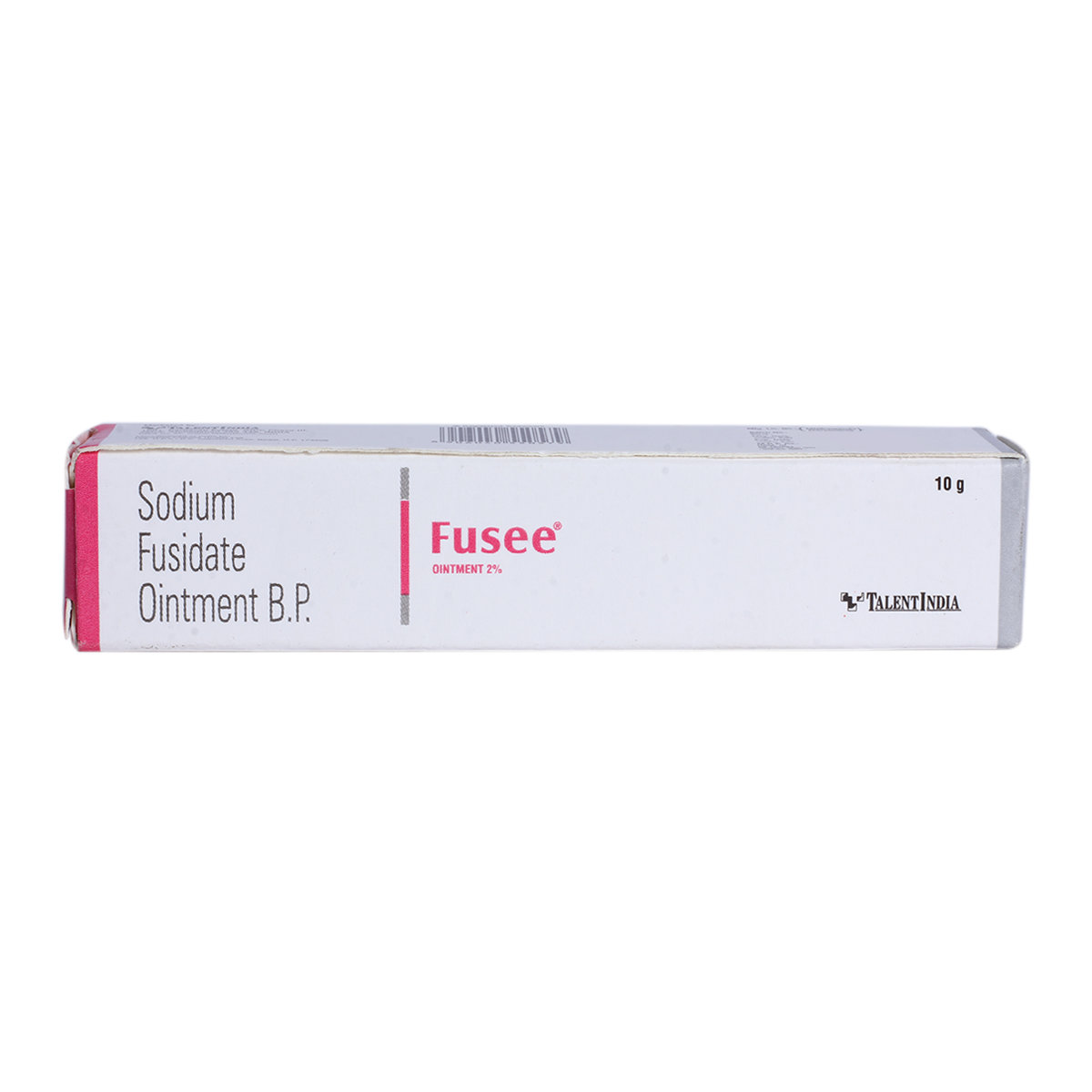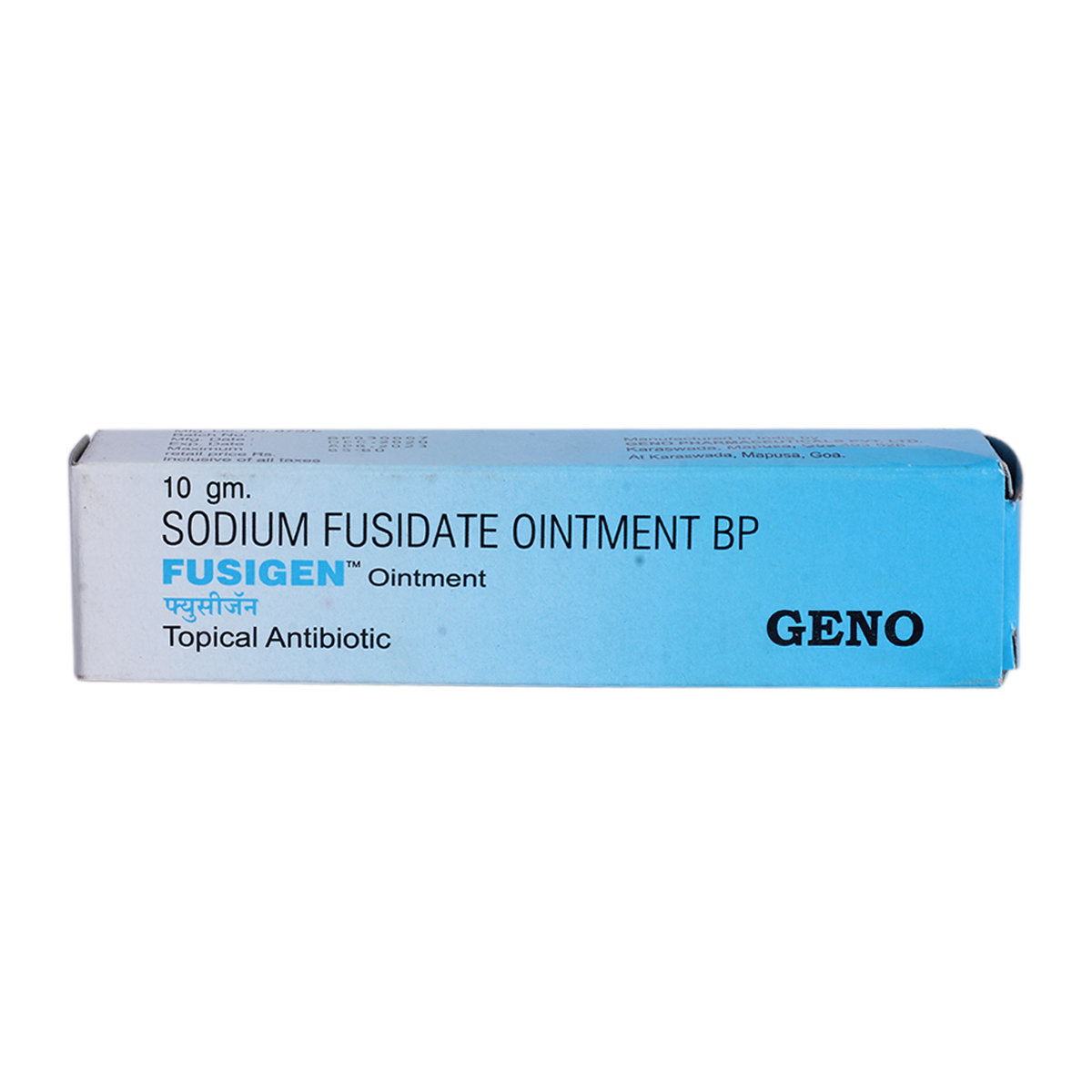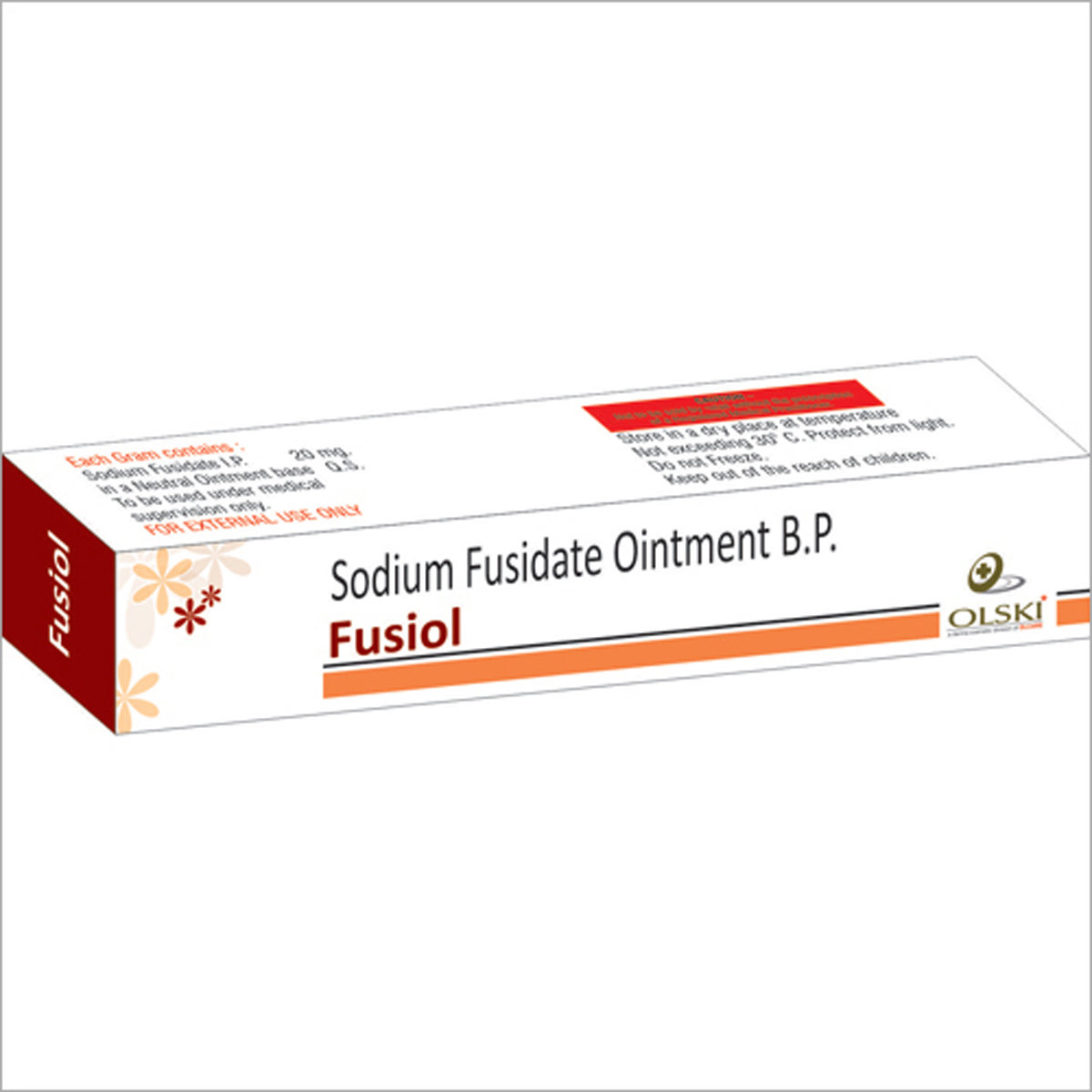Sodium Fusidate
About Sodium Fusidate
Sodium Fusidate belongs to a group of medicines called antibiotics used to treat bacterial infections. Bacterial infections are caused due to the multiplication of harmful bacteria in the body. Sodium Fusidate does not work against infections caused by the virus, including cold and flu.
Sodium Fusidate contains ‘Sodium fusidate’, which works by preventing the synthesis of essential proteins required for the survival of the bacteria. Thereby, stops bacterial growth and treats the infection.
In some cases, Sodium Fusidate may cause common side effects such as nausea, vomiting, diarrhoea, heartburn, fatigue, and stomach pain. Most of these side effects do not require medical attention and will resolve gradually over time. However, you are advised to talk to your doctor if you experience these side effects persistently.
Consult your doctor before taking Sodium Fusidate if you are pregnant or breastfeeding. Inform your doctor if you are taking cholesterol-lowering medicines, HIV protease inhibitors; if you have gallstones or liver problems. Keep your doctor informed about your health condition and all the medicines you are taking to rule out any side effects.
Uses of Sodium Fusidate
Medicinal Benefits
Sodium Fusidate is used to treat infections caused by bacteria named Staphylococcus. Sodium Fusidate works by preventing the synthesis of essential proteins required for the survival of the bacteria. Thereby, stops bacterial growth and treats the infection.
Directions for Use
Storage
Side Effects of Sodium Fusidate
- Stomach pain/discomfort
- Heartburn
- Nausea
- Vomiting
- Fatigue
- Diarrhoea
Drug Warnings
Do not take Sodium Fusidate if you are allergic to any of its components. Inform your doctor if you have gallstones, liver or kidney problems, or if you are taking HIV medicines or cholesterol-lowering medicines. Consult your doctor if you are pregnant or breastfeeding. Keep your doctor informed about your health condition and medications to rule out any interactions/side effects.
Drug Interactions
Drug-Drug Interactions: Sodium Fusidate may interact with cholesterol-lowering medicines (statins), anti-HIV (ritonavir, saquinavir), and blood thinners/anticoagulants.
Drug-Food Interactions: No interactions found/established.
Drug-Disease Interactions: Inform your doctor if you have liver disease, gall stones, HIV, or high cholesterol.
Drug-Drug Interactions Checker List:
Safety Advice

Alcohol
cautionIt is not known whether Sodium Fusidate interacts with alcohol. Please consult your doctor if you have any concerns.

Pregnancy
cautionPlease consult your doctor if you are pregnant; your doctor will prescribe only if the benefits outweigh the risks.

Breast Feeding
cautionPlease consult your doctor if you are breastfeeding; your doctor will decide whether Sodium Fusidate can be used by breastfeeding mothers or not.

Driving
safe if prescribedSodium Fusidate does not affect your ability to drive.

Liver
cautionPlease consult your doctor if you have any concerns regarding the usage of Sodium Fusidate in patients with liver impairment.

Kidney
cautionPlease consult your doctor if you have any concerns regarding the usage of Sodium Fusidate in patients with kidney impairment.

Children
safe if prescribedSodium Fusidate is safe to use in children if prescribed by the doctor.
Habit Forming
Diet & Lifestyle Advise
- Antibiotics can alter the useful bacteria in the stomach, which help in digestion. Therefore, you are advised to take foods rich in probiotics, such as yoghurt/curd, kefir, sauerkraut, tempeh, kimchi, miso, kombucha, buttermilk, natto and cheese.
- Eat fibre-rich food like whole grains, beans, lentils, berries, broccoli, peas and bananas.
- Avoid foods rich in calcium, grapefruit and grapefruit juice, as they might hinder the absorption of antibiotics.
- Avoid consumption of alcohol and usage of tobacco.
Patients Concern
Disease/Condition Glossary
Bacterial infections: A bacterial infection is a condition in which harmful bacteria enter, multiply, and infect the body. The harmful bacteria produce chemicals known as toxins, which can damage tissue and cause illness. It can target any body part and multiply very quickly. Symptoms include fever, chills, and fatigue. Anyone can become infected with a bacterial infection. But, people with a weak immune system or taking immunosuppressive medicines are more prone to bacterial infection.
FAQs
Sodium Fusidate works by preventing the synthesis of essential proteins required for the survival of the bacteria. Thereby, stops bacterial growth and treats the infection.
To treat your condition effectually, continue using Sodium Fusidate for as long as your doctor has prescribed it. Do not be reluctant to speak with your doctor if you experience any difficulty while taking Sodium Fusidate.
Sodium Fusidate may cause diarrhoea. Drink plenty of fluids and eat non-spicy food if you experience diarrhoea. However, if the condition persists or worsens, please consult your doctor.
Taking statins (medicines used to lower cholesterol) along with Sodium Fusidate may cause muscle weakness, pain, or tenderness. Please consult your doctor before taking statins with Sodium Fusidate.
Do not take Sodium Fusidate on your own, as self-medication may lead to antibiotic resistance in which antibiotics fail to act against specific bacterial infections.


